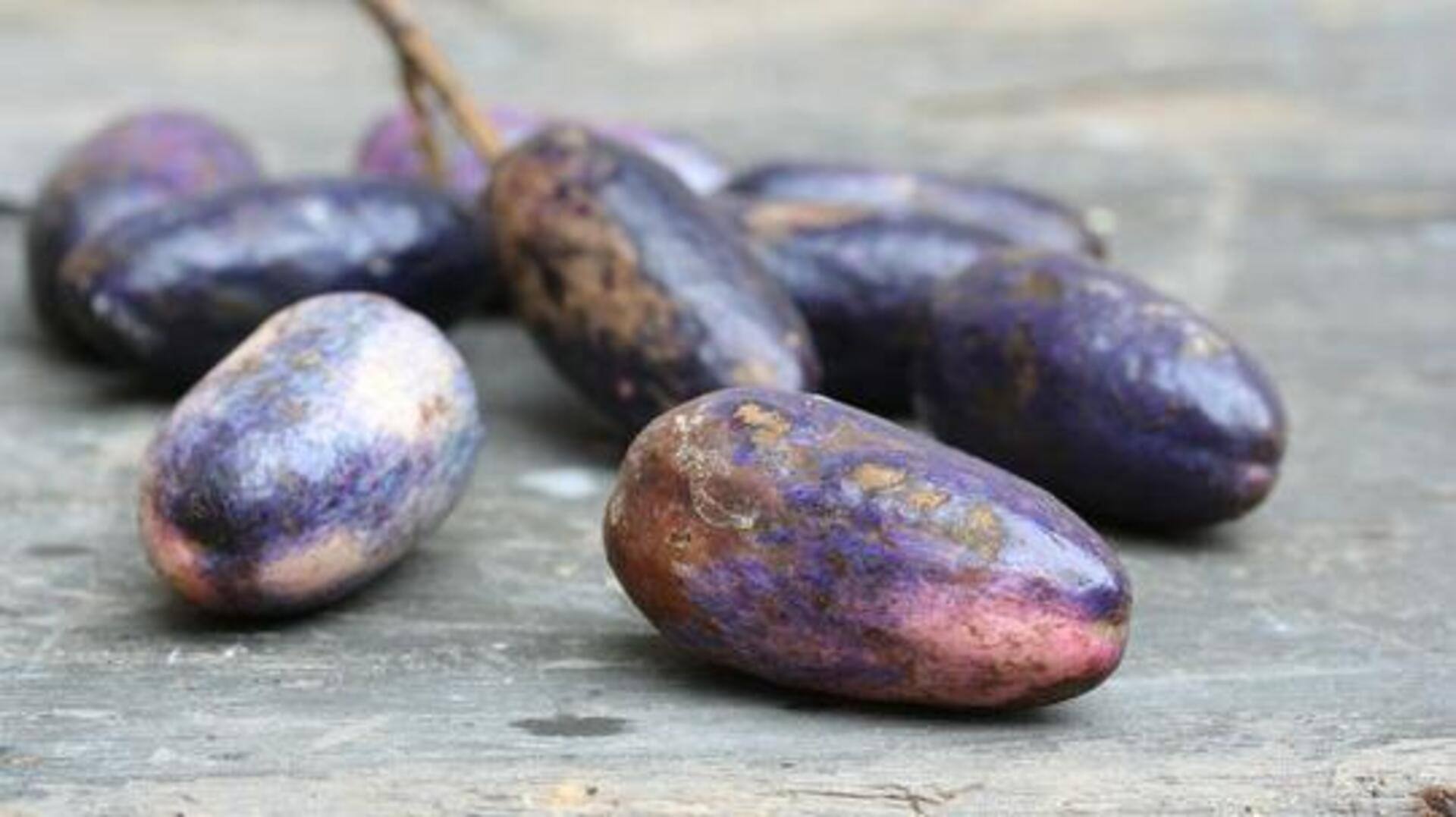
The health benefits of ube: Africa's superfood
What's the story
The African pear, also known as ube, is a colorful fruit indigenous to Africa, specifically in the western regions. But it's not just a pretty fruit; it's a superfood filled with nutrients and health benefits. This article delves into the world of ube as a superfood and its numerous health benefits.
Nutrients
Nutritional profile of ube
Ube is packed with vitamins A, B1, B2, and C, ensuring you get a healthy dose of key nutrients. It's also a good source of minerals, including calcium, potassium, and magnesium. High in dietary fiber, ube supports digestion and contributes to a healthy gut. Despite being low in calories, it's high in antioxidants that combat harmful free radicals.
Wellness
Health benefits galore
Eating ube can strengthen your immune system due to its high vitamin C content. Its antioxidants have the potential to decrease inflammation and minimize the risk of chronic illnesses like heart disease and diabetes. The dietary fiber present in ube aids in maintaining stable blood sugar levels and promotes heart health by lowering cholesterol levels.
Cooking
Culinary uses of ube
Ube is super versatile in the kitchen; you can totally munch on it raw or cook it up. In Africa, people traditionally roast or boil it and pair it with corn porridge (yum!), while its unique flavor - think the creaminess of avocado with a slight tang - makes it a go-to for flavoring sweet treats like ice cream and pastries.
Gardening
Growing your own ube tree
For gardening enthusiasts and those interested in sustainable living practices, growing an ube tree can be a rewarding experience. It is ideally suited to tropical climates, but with proper care, it can also be cultivated in subtropical regions. A mature tree requires little maintenance once established, and it will reward you with a plentiful supply of this nutritious fruit during its season.